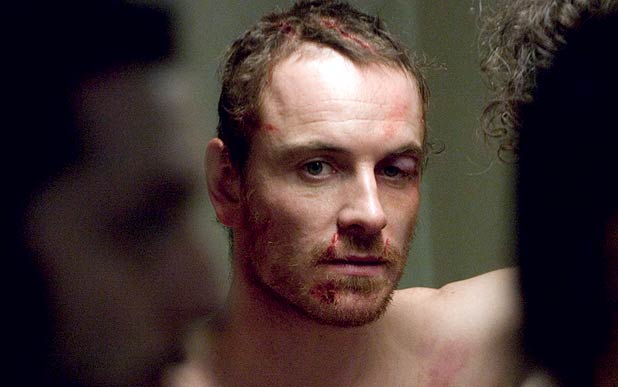
Irish cinema has always been held in high esteem and can boast a catalogue of commercially successful and critically acclaimed films that often draw on Ireland’s strong literary and musical traditions.
Undeterred by an economic recession, Irish cinema could be considered to be currently going through its most successful period. Irish films featuring heavily in the list of Oscar nominations in recent years and two Irish films being nominated for the best picture award at last year’s ceremony are examples of this success.
This list will look to see how the new breed of success stories stack up compared to the established cornerstones of Irish cinema that went before.
These are twenty essential films for anyone interested in or who wishes to be introduced to Irish cinema.
20. Once (2007, John Carney)
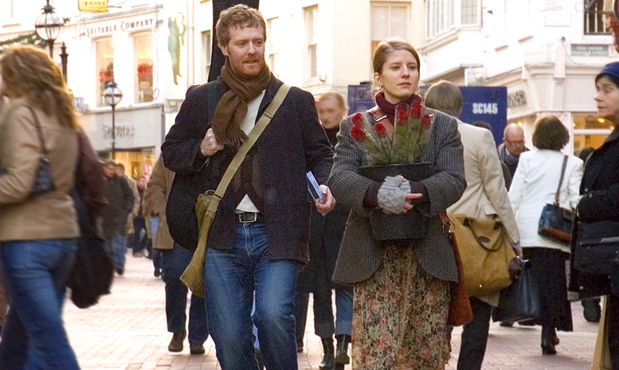
Once is the first film on the list and is one of many musical dramas, a genre that has become a staple of Irish cinema in recent years. The film is about a busker (Glen Hansard) who meets a flower selling Czech girl (Marketa Irglova) on the streets of Dublin and romance blossoms when they decide to compose a song together.
John Carney’s film gained a wider audience than could have been expected of a film with such a humble budget thanks mainly to the two lead actors winning the Academy award for best original song.
The film is a true musical in the sense that the story progresses more through diegetic musical performances than in dialogue that allows for the story to be told with a refreshing subtlety.
Much more than just a low budget film with a stunning soundtrack, Once is an excellent film and the perfect introduction to Irish cinema.
19. The Irish Pub (2013, Alex Fegan)
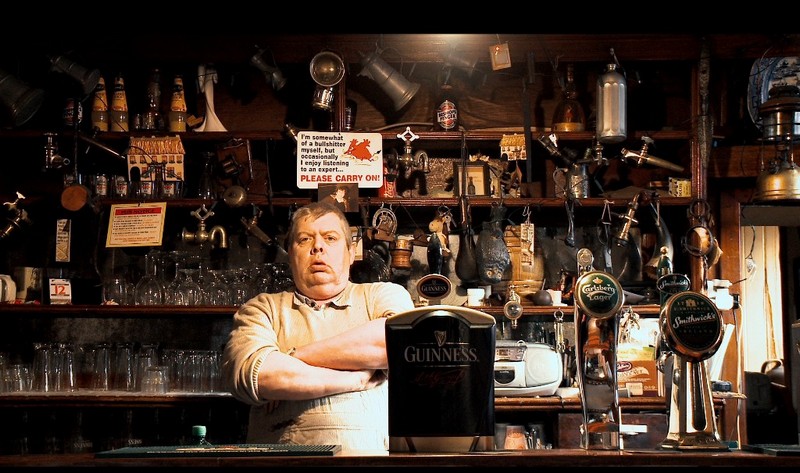
The Irish Pub is the first documentary to make the list and operates as a museum piece, immortalizing and preserving the traditional Irish pub and the fading way of life associated with it.
Alex Fegan looks to examine what it is that makes the typical Irish pub the greatest institution in Irish society and interviews a range of pub landlords and patrons from across Ireland.
This exercise produces an array of unique characters that give their own take on what it is that is so important about their local watering hole, all with a palpable sense of nostalgia, melancholy and an awareness that Irish society is undergoing an irreversible change.
This undemanding documentary is an authentic and endearing snapshot of Ireland and one of many recent Irish films that explore the conflict Ireland continues to grapple with, between the old ways and the new.
18. The Snapper (1993, Stephen Frears)
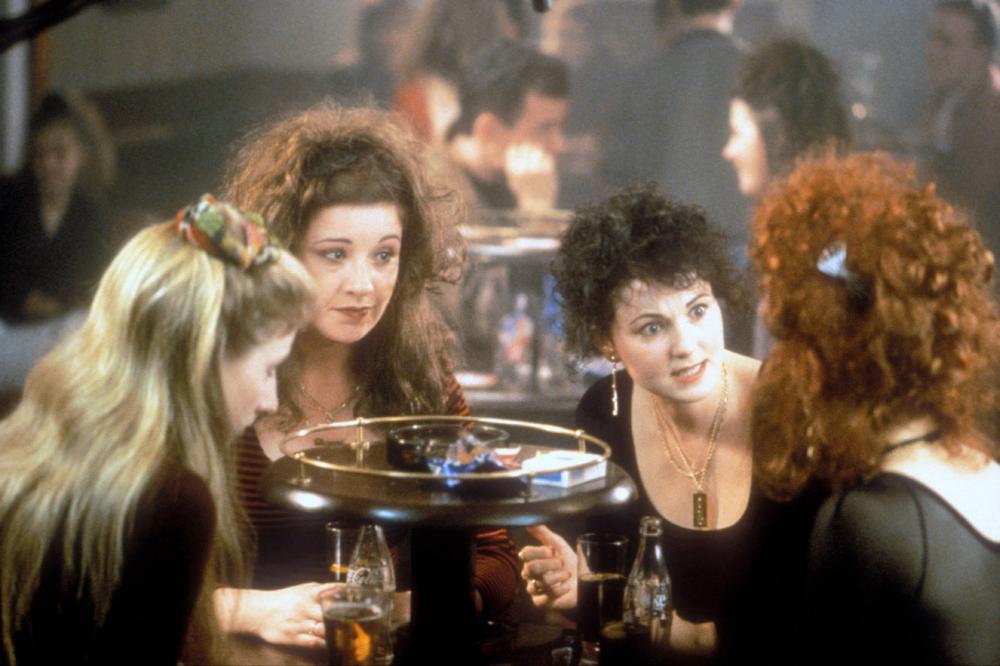
About an independent young woman (Tina Kellegher), unmarried and pregnant, The Snapper broke new waves in Ireland when it came out in 1993. However, its celebration of rationality and human decency over illiberalness won over even the most prudish of Irish audiences.
Colm Meaney is superb as Dessie Curley, the endearing patriarch of the Curley household and the film is the first of many on the list to feature fellow behemoth of Irish cinema, Brendan Gleeson.
The film is adapted from a novel by contemporary Irish writer Roddy Doyle that was part of a trilogy called the Barrytown trilogy.
The other two novels in the trilogy, The Commitments and The Van have been made into successful films as well. However, The Snapper, with Stephen Frears’ able direction and Doyle himself adapting the screenplay, is the film that stays truest to Doyle’s working class Dublin sensibilities. For that reason, it belongs on the list over the others.
17. The Secret Of Kells (2009, Tomm Moore and Nora Twomey)
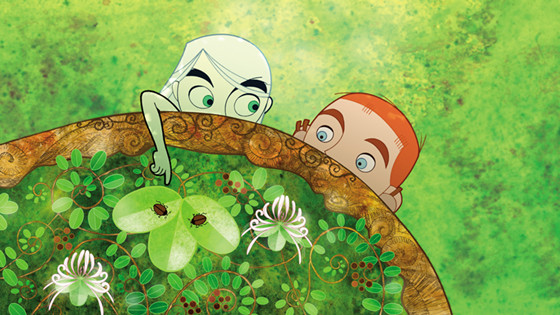
The Secret of Kells is the first animated film to make the list and is the first feature film by the Kilkenny based production company called Cartoon Saloon. Founded by Tomm Moore and Paul Young in 1999 the company has gone onto become a multi-award winning animation studio with The Secret of Kells and Song of the Sea (2014) achieving Oscar nominations.
The Secret of Kells is about a young boy living under the strict care of his uncle, Abott Celach (voiced by Brendan Gleeson) in the Abbey of Kells, a remote medieval outpost under siege from barbaric Vikings and is set in the 9th Century at the time of the creation of The Book of Kells.
More Hayao Miyazaki and less Pixar, The Secret of Kells is a stunningly beautiful animation inspired by medieval designs and Celtic mythology. The enchanting visuals are supported by a mesmeric use of Irish traditional music that make this a must watch.
16. The Guard (2011, John Michael McDonagh)
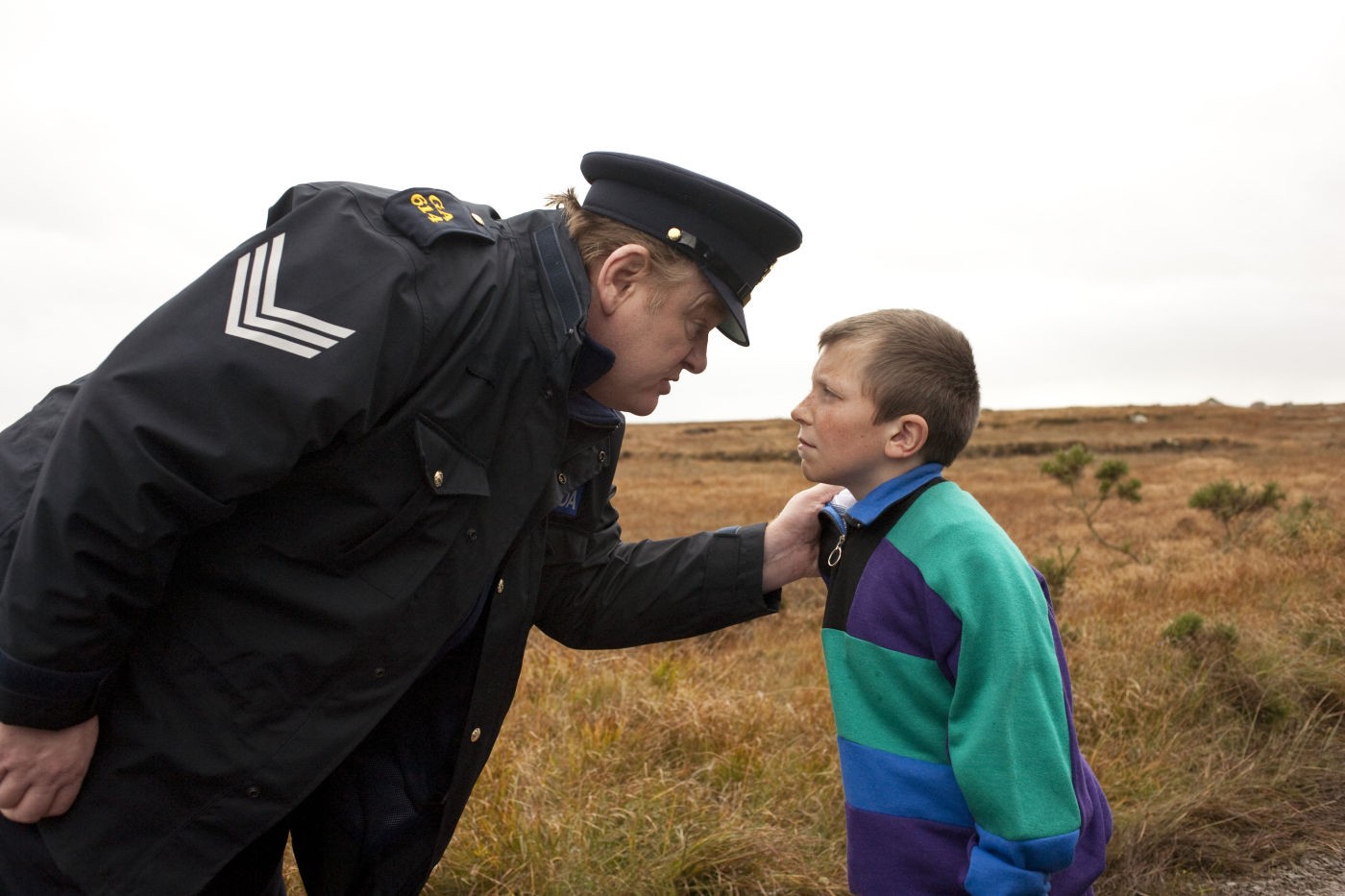
The Guard is a comedy set in the west of Ireland about an unorthodox foul-mouthed cop and was written and directed by John Michael McDonagh.
Like his brother, the Irish playwright turned filmmaker, Martin McDonagh (In Bruges, Seven Psycopaths), John Michael McDonagh has gone onto become a successful film director in recent years and can be seen to share his brother’s offbeat approach to storytelling.
Brendan Gleeson was nominated for a Golden Globe for his superb portrayal of the insolent Garda sergeant Gerry Boyle, who is forced into partnering up with straight-laced FBI agent Wendell Everitt (Don Cheadle), to make the oddest of odd couples as they attempt to take down a group of drug smugglers headed by Liam Cunningham.
Receiving significant critical acclaim, The Guard is also the most successful Irish film of all time in terms of Irish-box office receipts.
15. The Crying Game (1992, Neil Jordan)
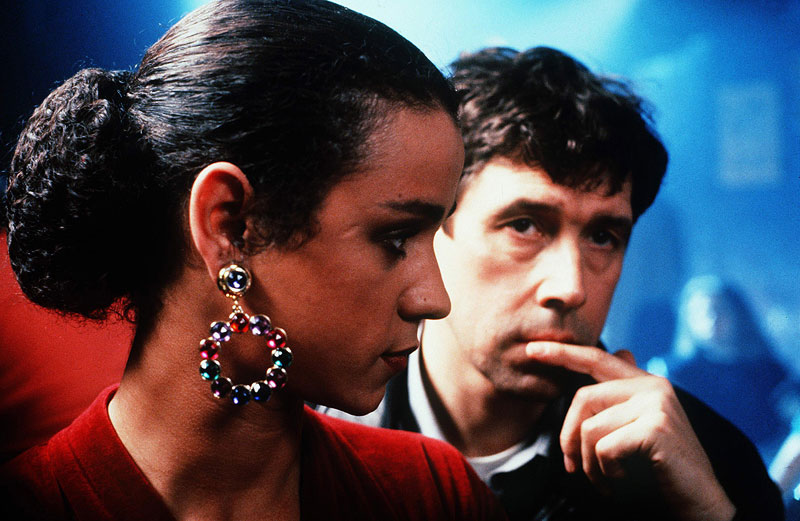
The Crying Game is the story of an Irish Republican Army man, Fergus (Stephen Rea), who, in a hasty but meaningful encounter, strikes up a surprising bond with a kidnapped British soldier, Jody (Forest Whitaker). The film was nominated for 6 Oscars, winning best screenplay, and is widely considered the finest film in Neil Jordan’s lengthy filmography.
The Crying Game is also the first on the list that attempts to deal with the defining socio-political event in Ireland’s recent history; the Northern Irish troubles (however it is unlikely to be the last).
Neil Jordan’s film has been particularly well received by critics and audiences alike because it attempts to deal with the Northern Irish conflict whilst also exploring themes of gender, race, nationality and sexuality.
The film also includes one of cinema’s most jaw dropping twists.